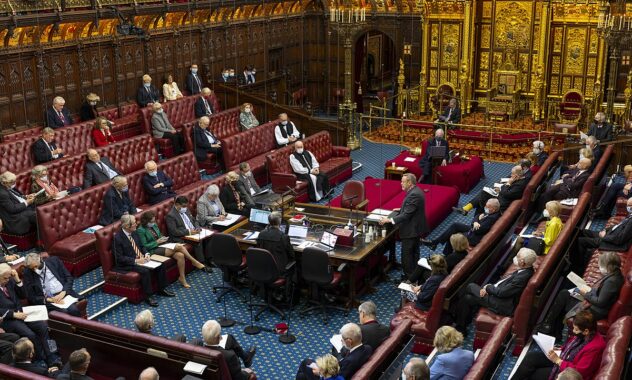Strikes (Minimum Service Levels) Bill becomes law
Government Bill to introduce Minimum Service Levels during industrial action receives Royal Assent

The Strikes (Minimum Service Level) Act has received Royal Assent in Parliament. The Government have stated that they will now “proceed with plans to implement minimum service levels for passenger rail services, ambulance services and fire and rescue services”.
The legislation has cleared both Houses of Parliament after a protracted battle over its impact. It has faced strong opposition from unions and opposition parties in Parliament, but the House of Lords finally relented in its stand-off with the Government on Thursday, with the Labour front bench offering no amendments – allowing the Bill to pass back to the Commons and into law.
The Trades Union Congress (TUC) vowed to fight it “tooth and nail”, and claimed it would damage workers’ rights. TUC general secretary Paul Nowak said:
“The Conservatives are threatening to take a wrecking ball to our fundamental right to strike. No-one should be sacked for trying to win better pay and conditions at work – especially in the middle of a cost-of-living crisis. But that is exactly what this draconian legislation will allow. These new laws will give ministers the power to snatch away the right to strike from a massive one in five workers – that’s 5.5 million people.
Make no mistake, the TUC will fight this pernicious legislation tooth and nail – exploring all options including legal routes. We won’t stand by and let workers get sacked for defending their pay and conditions.”
Unite General Secretary Sharon Graham said:
“If you wanted an example of just how out of touch with reality this government’s priorities are, then it is summed up by this legislation. We’ve got a cost-of-living crisis, an NHS crisis, people are struggling and the government is targeting the right to strike.
“Rather than concentrating on tackling the terrible mess they’ve made, they’re trying to attack the very organisations that defend working people. This attempt to shut down those voices won’t work and will extend industrial action.”
Labour has pledged to repeal the law if it gets into government. In the House of Lords earlier in the day, Labour peer Lord Collins of Highbury said:
“This is a skeletal Bill. An example of legislating and then determining policy and procedure. It’s really the wrong way round. I repeat the intention of a future Labour government to repeal this Act. Because it doesn’t have the support of workers’ representatives or employers. It’s impracticable and it will simply result in not achieving the objectives of the Bill as the Government set out, but worsening the situation in industrial relations. Even the Government’s own impact assessments have said it could possibly increase strikes.”
Business Minister Kevin Hollinrake said:
“This legislation is an appropriate balance between the ability to strike, and protecting lives and livelihoods. The UK remains a world leader for workers’ rights and these new laws will not prevent a union from organising industrial action.”
Rail Minister Huw Merriman said:
“The ability of workers to take strike action is an integral part of industrial relations, however, this should not be at the expense of members of the public. The passing of this Bill will help give passengers certainty that they will be able to make important journeys on a strike day.”
In Scotland, the passing of the Bill into law came in for criticism. The Scottish government’s wellbeing economy and fair work secretary Neil Gray said:
“It is extremely disappointing to hear the UK Government’s Bill to introduce Minimum Service Levels during industrial action has received Royal Assent. The Scottish Government views this legislation as unnecessary, unwanted and ineffective. It seeks to undermine legitimate trade union activity and does not respect the Scottish Government’s Fair Work principles of effective voice, fulfilment, opportunity, respect and security.
We should be working with the public sector and trade unions to reach fair and reasonable settlements respecting the legitimate interest of workers, not seeking to curb their right to strike. The UK Government’s introduction of this wholly unwelcome Act is unnecessarily inflammatory and will, therefore, act against the interest of the public.”







